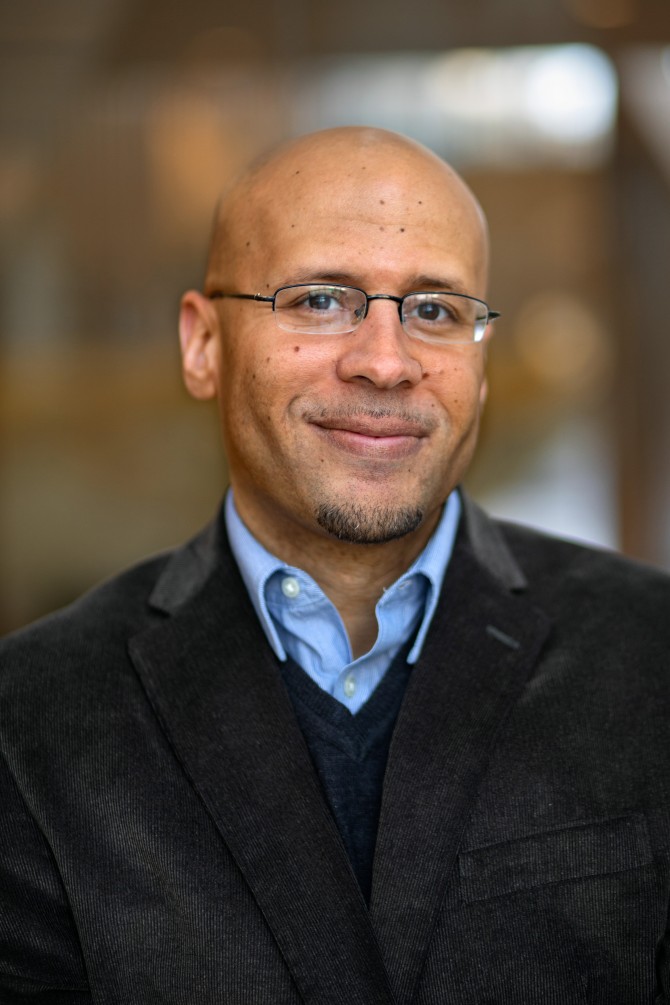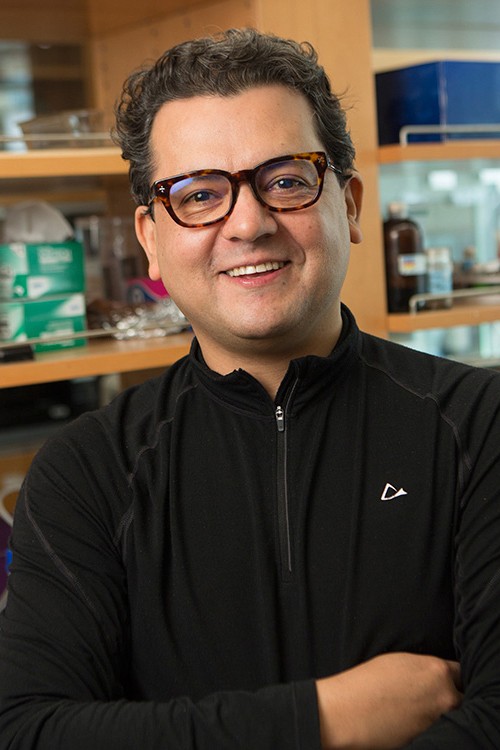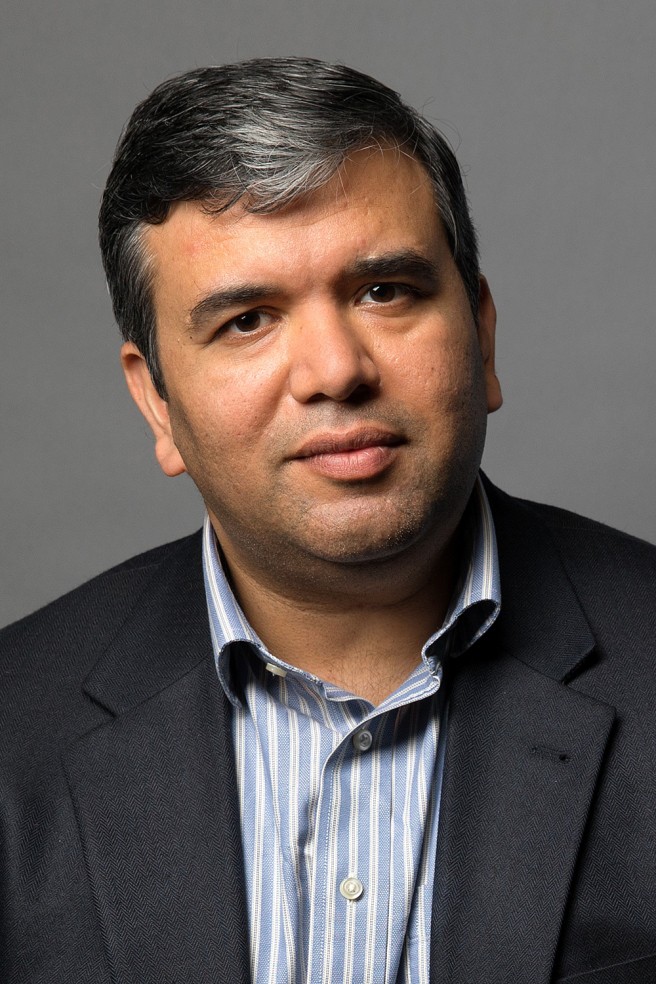Four Faculty Awarded with Endowed Professorships
Four professors from the College of Human Ecology were awarded endowed professorships this summer that will fund ground-breaking research and outreach in a broad range of disciplines. Their research areas include new innovations in fiber science and apparel design, promoting and understanding Cornell students’ sense of purpose, interventions to improve the nutrition and health of vulnerable populations worldwide, and tools to develop outdoor spaces that encourage youth development.
“I am so grateful for the generous donors who funded these endowed professorships, allowing us to honor some of our most highly-regarded and impactful faculty members,” said Rachel Dunifon, the Rebecca Q. and James C. Morgan Dean of the College of Human Ecology. “Through their work, these scholars address issues critical for human health and well-being, and improve human lives. I am happy to be able to support and recognize them.”
Anthony Burrow was named the Ferris Family Associate Professor of Life Course Studies in Cornell’s newly-formed Department of Psychology.
Burrow’s work focuses on sense of purpose, or the feeling that one has a meaningful direction in life. He is interested in better understanding the benefits of having a sense of purpose, and how this sense serves a source of protection in challenging or stressful times – especially in the lives of young people. Burrow also studies how notions of race form our sense of self, and how racial identity affects well-being.
Burrow hopes to use funds from the new endowment to expand a project he and his colleagues launched in 2019 called The Contribution Project. The idea was to help Cornell undergraduate students make meaningful contributions by asking them to submit an idea for a positive change they would like to make in the world, and then provide monetary support for that initiative. “We simply wanted to empower Cornell undergraduate students to contribute in any way they wished,” Burrow said. “The details were totally up to them.”
One hundred and sixty students applied for the grant, and 50 recipients were chosen at random. They used the money for projects such as creating new signage for food waste disposal in Cornell dining halls, building a web application to help low-income families in northern New Jersey, and launching a photography project to help boost self-esteem for people with cognitive disabilities in Tompkins County.
“I want to use my being honored with this endowment to create more opportunities to support student contributions, and then learn from students as they are making them,” Burrow said. “I would like to explore why students choose specific projects and how they leverage what might be a relatively small amount of money to make something much bigger happen.
“As a university, we can use this as an opportunity to understand the types of contributions students most want to make in the world, and tailor some of our offerings to support these interests,” he said.
Juan Hinestroza was named the Rebecca Q. Morgan ’60 Professor in Fiber Science and Apparel Design. Hinestroza’s work explores the interface between the established field of textile science and the emerging and revolutionary field of nanoscale science.
His works aims to modify the properties of existing textiles by adding nanomaterials, create new nanofiber-based materials and develop tools to better understand issues in textile processing which can be addressed at the nanoscale.
Hinestroza plans to use the endowment funds to explore projects that combine fiber science with apparel design. “Most academic funding is allocated to either a science project or a design project, but rarely a project that merges both,” he said. “I plan to use this funding to help students explore the interface between fiber science and apparel design.”
Specifically, Hinestroza’s research lab is launching a new project to create apparel such as shirts or backpacks that have sensors to detect biomarkers in sweat.
“Sweat is one of the most misunderstood body fluids,” Hinestroza explained. “Through sweat, we can detect glucose, lactic acid and urea. I want to find out if we can create clothing that will use sweat to give us information about what’s going on with the human body.” Such apparel could be used to help people who are diabetic to monitor their blood sugar, help athletes to train at optimal effort levels, and help people with kidney disease to measure and better understand their kidney function.
Janet Loebach was named the Evalyn Edwards Milman Assistant Professor in Child Development. Her work focuses on designing youth-friendly environments and communities, then examining how these environments impact play, learning behaviors, mobility and healthy development. She is also focused on involving children in the development and planning of these environments.
One central theme in Loebach’s work is creating neighborhoods youth can navigate independently.
“The idea of navigating spaces on their own and having to make decisions is incredibly important for child development,” she said. “Over the past several decades, children have been spending much less time outdoors and in their neighborhoods, and that has some negative developmental consequences. I want to help build environments youth can learn to navigate safely and confidently on their own, and ultimately build their sense of environmental competence.”
Loebach plans to use some of the funds from her new endowment to develop a publicly available audit tool that assesses the diversity and quality of opportunities offered by outdoor play spaces for children and identifies gaps or areas for improvement. “The idea is to promote children spending time outdoors and in free play, and to build spaces that give them a wide variety of opportunities that support high quality play and learning experiences,” she said.
The tool would be available for anyone to use without the help of researchers. Loebach imagines city planners, day care centers and schools, for example, would be able to use the tools to evaluate their own spaces. “We also want to offer design guidelines to help people optimize their play spaces,” she said.
Saurabh Mehta was named the Janet and Gordon Lankton Professor in the Division of Nutritional Sciences. Mehta is a physician and epidemiologist with expertise in nutrition, infectious disease and diagnostics. The focus of his research is the interplay between nutrition, inflammation and disease during pregnancy and early childhood. This is achieved through a combination of active surveillance programs, invention of point-of-care diagnostics and randomized controlled trials in resource-limited settings in India, Sub-Saharan Africa and South America.
Mehta is currently the principal investigator on two randomized clinical trials — one in the urban slums of Mumbai and one in rural southern India — to determine the effects of delivering nutrients such as iron and vitamin A through biofortified crops on nutrition, immune function and the gut microbiome in infants.
He is also the co-inventor of the Cornell NutriPhone and FeverPhone, a platform funded by the National Institute of Health and the National Science Foundation that provides point-of-care diagnosis of nutritional status and infections. This platform is field-friendly, non-invasive and inexpensive, requires minimal infrastructure or training, and yields results in as little as 15 minutes.
“I am very grateful to the College of Human Ecology and the Division of Nutritional Sciences for this honor and for the continued support of my research program,” Mehta said. “The funds from this endowment will help generate pilot data for methods to evaluate biomarkers of nutrition, inflammation and infection to inform screening programs and interventions to improve the health of vulnerable populations.”





